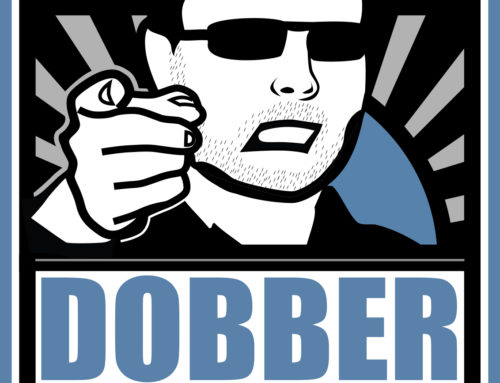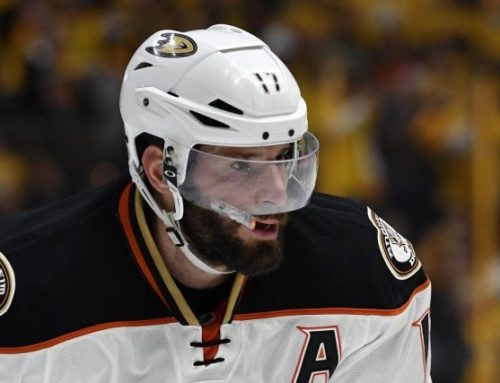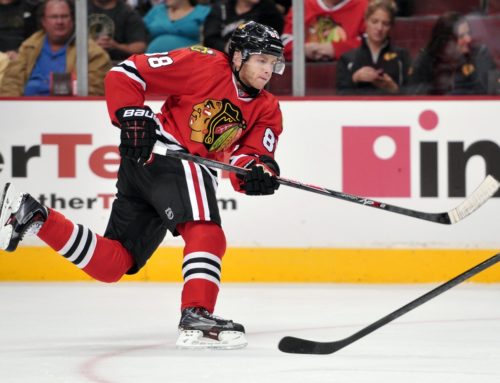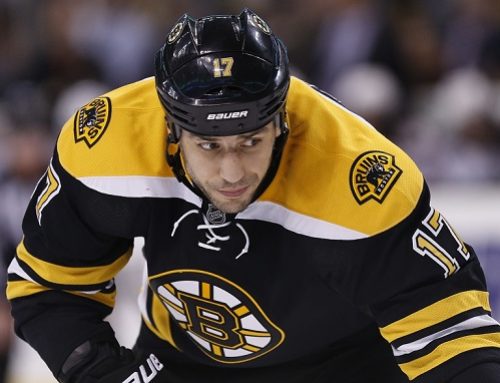
Every save in the Stanley Cup Playoffs is magnified to such an extreme degree that each shot could mean the difference between winning and losing a series. And when it comes to a goaltender suppressing that pressure, whether the force comes from an internal or external source, there's a certain amount of equanimity that must be executed in order to stop pucks effectively in a seven game series.
Yes, the first five days of the playoffs have been nothing short of spectacular, awe-inspiring hockey. I have followed along as closely as possible, updating my Playoff Beast Tracker on a nightly basis. Although it's a great resource for goalie fans everywhere, I personally get a huge kick out of managing and dissecting every single post-season performance. Why? Because it pays huge dividends by exposing many influential dynamics as they happen.
Besides the obvious statistical dynamics like power play shots against, save percentage while up a goal and down a goal and saves by period, the Beast Tracker also helps me understand the many mental obstacles that plague goalies in the playoffs. It gives you a great glimpse into the mind of each goalie and you learn so much about their genetic makeup as a winner and a clutch keeper.
Of all the endless mental dynamics I've dissected in the last five days, none has been more important (mainly due to the inexperience) than composure. There are many definitions of composure, but the one that matters most for a goalie is the ability to display a calmness of mind or appearance.
What makes composure such an important goaltending concept and component in the Stanley Cup Playoffs is the fact that every player on the ice is influenced by a goaltender's composure. Every piece of their body language, demeanor and reactions will sway a goalie's teammates to either gain confidence with every big save or lose confidence when a weak goal is allowed.
The reverse effect takes place with the opponents. If they see a goalie lose composure, they gain energy and feed off it. If they see a goalie make an unbelievable save, they start to tense up and over-think their shots. Even fans can play a role in the trickle-down effect that comes from a goalie's composure.
The best example I could find so far in the playoffs is through Jaroslav Halak in Game 2. His most visible trait all season long was easily his cold-blooded composure, as regardless of his workload or the pressure he faced, it only took a few months to prove that he was one the most mild-mannered and even-keeled young goalie in the league.
But when Alex Ovechkin and Mike Knuble screened Halak as Nicklas Backstrom scored late in the second period, Jaro failed to keep his composure by reacting negatively to the referee. Now this wasn't a bad thing per se, as it can be good to have a goalie show a little fiery emotion, especially on a close call. But this was a major mental miscalculation by Halak for the simple reason that it opened the door for his ire with the referees to escalate and rise.
And it didn't take long for that to happen. Alex Ovechkin tied the game 3-3 by using his stick to shove a puck that was underneath Halak's pads into the net. That caused Halak, who still had the first issue of goalie interference in the back of his mind, to turn around and again react negatively to a questionable call by the referee. Fool me once, shame on you. Fool me twice, shame on me.
This was not only an uncharacteristic loss of composure for Halak, it was a big reason why Washington gained more confidence as the game continued. Halak was rattled, but he really brought it upon himself. When so much focus must be exerted on simply tracking the puck, allowing distractions like referees, bad bounces or penalties to seep into the subconscious and increase frustration will turn out to be monumental obstacles. And in Game 2 for Halak, it turned out to be the difference. After Ovechkin tied the game, Halak's composure, focus and confidence crumbled.
A Witness to History
I walked into Pepsi Center for Game 3 of the Avalanche-Sharks series fully expecting a good goaltending matchup. Boy was I wrong. It wasn't a good matchup, it was downright historic.
Craig Anderson made 51 saves for the shutout, including 21 in both the second and third period alone, and Evgeni Nabokov stopped every scoring chance thrown his way in what was by far the most memorable hockey game and goaltending matchup I've witnessed live since the NHL Lockout ended.
So many things will be written about Anderson's performance, including the lop-sided shot total of 51-16, the number of penalties he helped kill, the sheer quality and quantity of scoring chances against him and the fact that almost the entire third period was spent in his own zone.
Yes, all of those things are glorious morsels of information about one of the most dominant goaltending performances in Pepsi Center since Patrick Roy won the Stanley Cup in 2001. He was exhausted at times, he was lucky at times, but more often than not, he just simply executed to perfection. But few will talk about or explain the importance of his ability to stay composed throughout this game, mainly because it's not something that can be quantified statistically.
The reason Anderson was so focused in this game was due to his aggressiveness and fierce focus. He established a presence very early in the game and never backed into his blue paint. No matter how much crease-crashing or screening or deflecting happened in front of his net, he never once relinquished his space.
Establishing a certain amount of healthy space in front of the net isn't easy, especially against the Sharks, because it forces a goalie to exert energy and react. And when that happens, a goalie is mentally distracted and they are forced to do things that take their mind off the task at hand of stopping and tracking pucks.
On a number of occasions, Anderson would jab a Sharks player with his stick to keep them out of his crease, push back players with his gloves and most importantly, when bodies were battling against each other in his crease, he displayed maturity and focus by skating away from the nonsense. He stayed in his own personal bubble of perfection.
You hear so often about a goalie being in the zone and seeing the puck turn into the size of a beach ball. That's so very true, and that perfect combination of rhythm and focus is often the difference between a shutout and one bad bounce or one goal against.
But Anderson's performance in Game 3 was so much more than just the aligning of stars or the luck of pure timing. It was a masterful display of extremely high work ethic and composure. There were tons of hits, 15 Sharks power play shots against him, long periods of grueling movement and tracking in the zone and a lot of calls from the referees. Regardless, Anderson's focus on stopping the puck and his ability to block everything else out of his mind was the reason why he had the energy to sustain the Sharks' onslaught late in the third period. It was the most effective mental management of a playoff hockey game from an inexperienced playoff goalie that I may have ever seen.
So as you watch these glorious playoff games remember what composure means to a goaltender and learn what it looks like. Of all the endless topics and moments I could have discussed in this week's School of Block, none is more important than composure because it's a lesson in life that no person or player is exempt from learning.
Composure is passing up chances to draw an interference penalty. Composure is not taking liberties with players above your crease when their back is turned. Composure is staying in the net instead of trying to go out and make a risky poke check or pass. Composure is not reacting negatively to the referee when a questionable goal is scored. Composure is literally hiding all emotion and revealing stone-cold poise.
And most importantly, composure is the ability for a goalie to eliminate chances for the other team to gain confidence.





 PHI
PHI TOR
TOR ANA
ANA NYI
NYI BUF
BUF CGY
CGY VAN
VAN CAR
CAR STL
STL MTL
MTL WSH
WSH
